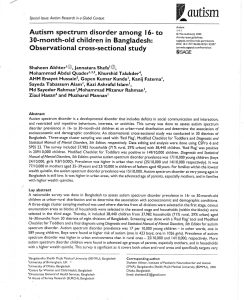
What are Tics?
Tics are rapid movements or sounds that are repeated over and over for no reason. A person with a tic can’t control the movement or sounds. Throat clearing, eye blinking, sniffing or shoulder shrugging are common tics. Tics are often worse when a person feels stressed, tired or anxious. Some medicines can make tics worse.
What is Tourette syndrome?
Tourette syndrome is a type of inherited tic disorder. Children who have Tourette syndrome will repeat both movements and sounds. Several different tics can happen at the same time, but they may not always occur together. These outbursts are neither intentional nor purposeful.
If a child has Tourette syndrome, the tics usually start when he or she is between 3 and 10 years of age. The movements and sounds come and go, and usually they aren’t a severe problem. Keep in mind that your child may have a tic but not have Tourette syndrome.
On TV, in movies and in the news, Tourette syndrome is often associated with cursing, or making offensive sexual or racist comments. However, only a small percentage of people who have Tourette syndrome have this symptom.
Will my child outgrow this?
Most tics go away after a few months. However, sometimes a person will have 1 or 2 tics for many years. Children who have Tourette syndrome usually have their worst symptoms when they are between 9 and 13 years of age.
Is there any treatment?
Many children won’t need treatment, but some may if their tics get in the way of their daily lives. Medicines are available that can help these children.
No one medicine can take care of all the symptoms of Tourette syndrome completely. However, medicines are available to help reduce specific symptoms. Like most medicines, the medicines used to treat Tourette syndrome may cause side effects.
What can I do to help my child?
Learn about tics and Tourette syndrome and explain them to people who regularly interact with your child, such as relatives, teachers and day care providers.
Understand that your child has very little control over tics caused by Tourette syndrome. If you focus too much on the tics, they may get worse. In most cases, it’s not helpful to encourage your child to try to stop a tic. Your child can hold back tics for a little while, but eventually the tics will come out.
What else should I know?
Associated conditions with Tourette Syndrome include ADHD, impulsiveness and learning disabilities.
Tics may affect more than 1 person in a family. Tics and Tourette syndrome should be considered as a possible cause if a child with a family member who has Tourette syndrome has learning or behavior problems.
Most people with TS lead productive lives and participate in all professions. Remember to be tolerant and create awareness around you as this is of paramount importance to your child with TS.




 IPNA wants to create a world where children with developmental disabilities and their parents can get their questions answered and their needs met in a caring environment.
IPNA wants to create a world where children with developmental disabilities and their parents can get their questions answered and their needs met in a caring environment.